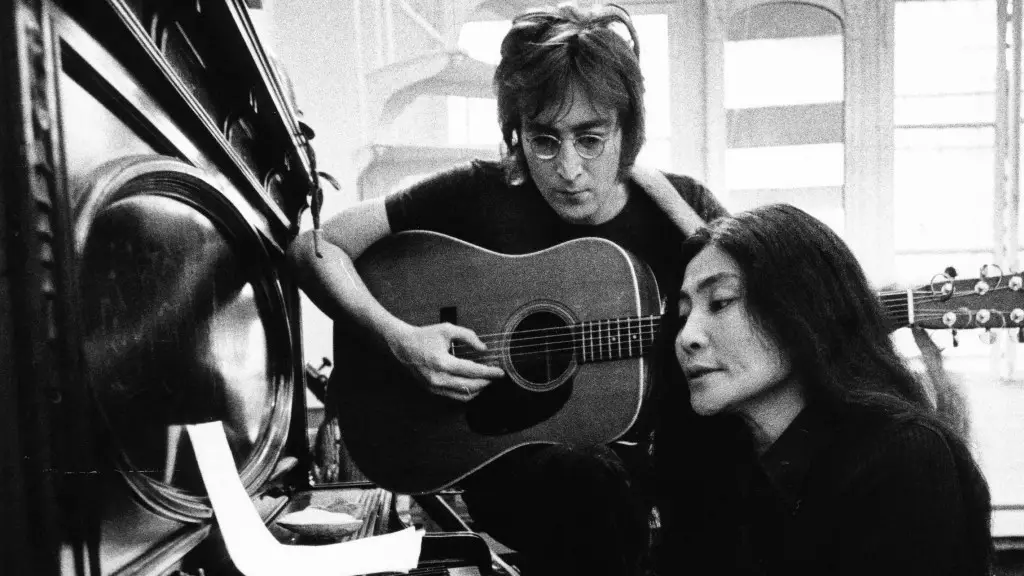The documentary landscape has undergone significant transformation in recent years, with filmmakers increasingly blending archival footage, personal narratives, and cultural commentary to create compelling cinematic experiences. Kevin Macdonald’s “One to One: John & Yoko” epitomizes this evolution, presenting an intimate portrayal of one of the most iconic couples in music history. Set against the backdrop of early 1970s Greenwich Village, this film not only chronicles the couple’s personal lives but also examines broader societal issues that resonate with contemporary audiences. After its world premiere at the Venice Film Festival and appearances at Telluride and Sundance, the documentary is poised to make a significant impact upon its upcoming release.
What distinguishes “One to One: John & Yoko” from other documentaries is its innovative use of previously unseen material, paired with meticulously restored footage from Lennon’s only full-length concert after the Beatles disbanded. This concert, the One to One benefit concert at Madison Square Garden on August 30, 1972, serves as both a historical anchor and a narrative fulcrum for the film. Sean Ono Lennon’s involvement in the audio remastering process further adds authenticity to the documentary, providing viewers with a fresh auditory experience of a musical event that shaped the careers of its performers.
Through careful curation of archival material, Macdonald configures a narrative that not only highlights personal milestones but also engages with cultural touchstones. The documentary juxtaposes John and Yoko’s intimate experiences in their Greenwich Village apartment with the tumultuous socio-political climate of the time, inviting viewers to consider the interplay between personal and public spheres.
At its core, “One to One: John & Yoko” is a film about love, activism, and social engagement. During their year of living in New York City, John and Yoko were not just passive observers; they were deeply affected by American television and culture, which inspired a transformation in their approach to protest. One pivotal moment came when they watched a Geraldo Rivera exposé, igniting their resolve to organize the One to One concert, thus merging their artistic and political expressions.
This documentary masterfully illustrates how personal experiences can catalyze wider societal change. By showcasing John and Yoko’s evolution from artists to engaged activists, Macdonald not only captures their journey but also draws parallels to modern issues faced today. The film serves as a reminder of the power of art to inspire action and change, resonating with audiences who may find themselves grappling with similar themes.
Macdonald’s artistry extends beyond just the footage; it encompasses the very essence of storytelling in documentary filmmaking. By co-directing and editing alongside Sam Rice-Edwards, he achieves a seamless blend of narrative threads that feels both cohesive and expansive. The documentary communicates not only facts but also emotions, allowing the audience to experience John and Yoko’s story on a deeper level.
Through authentic storytelling, the film invites viewers to form a connection with its subjects, creating a sense of shared humanity. This resonates with Magnolia Pictures co-CEOs Eamonn Bowles and Dori Begley’s assertion that the documentary presents a “marvelously human and revealing look” at the iconic couple. The emphasis on humanizing figures who, in the public eye, have often been mythologized, plays a critical role in making the documentary relatable and engaging.
Scheduled for an exclusive IMAX release on April 11, followed by airing on HBO and streaming on Max in late 2025, “One to One: John & Yoko” promises to attract both dedicated fans and new viewers alike. In a time when many seek solace and understanding through stories of resilience and love, this documentary holds a mirror to its era while also reflecting our current societal challenges.
Macdonald’s assertion that the film immerses viewers in the world of 1972—a period that echoes through today’s global landscape—highlights the film’s role in fostering dialogue about crucial contemporary issues. With the backing of esteemed production teams like Plan B and Mercury Studios, the documentary stands poised not only to entertain but also to elevate discourse around love, activism, and music.
“One to One: John & Yoko” is more than a documentary; it is a significant cultural artifact. By resurrecting the past and presenting it through a modern lens, Macdonald invites audiences to reflect on the intricate relationships between personal lives and societal change, ultimately suggesting that the core messages of love and unity remain timeless.


Leave a Reply